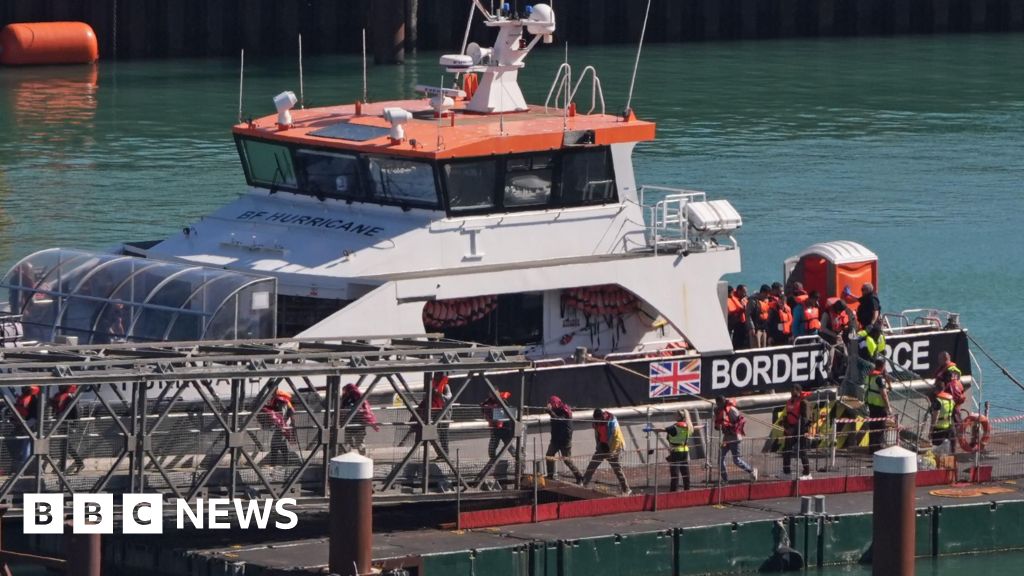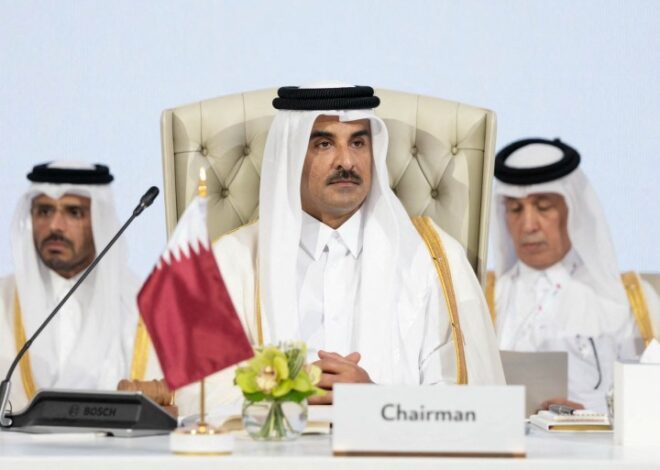
Eritrean man wins block on removal to France under 'one in, one out' deal

Eritrean Man Temporarily Blocks Removal to France Under ‘One In, One Out’ Deal
An Eritrean man who arrived in the UK via a small boat has successfully secured a temporary legal injunction preventing his removal to France. The 25-year-old was scheduled to be deported on Wednesday as part of the “one in, one out” returns pilot scheme, a policy established in July between the UK and France. This case marks the first legal challenge against the agreement, illustrating the complexities involved in immigration law and the treatment of asylum seekers.
The Legal Challenge
The man’s legal representatives argued in the High Court in London that he required additional time to present evidence supporting his claim that he might be a victim of modern-day slavery. They contended that the decision to remove him was made hastily and without adequate consideration of his circumstances. The judge, Mr. Justice Sheldon, acknowledged that there were serious issues to be examined regarding the man’s trafficking claim and the legality of the Home Secretary’s investigatory duties.
During the proceedings, it was revealed that while the Home Secretary’s officials had initially dismissed his slavery claim, they also indicated that he had the right to make further representations and that it would not be reasonable to expect him to do so from France. Consequently, the judge determined that the man’s departure should be temporarily blocked to allow for a more thorough investigation into his claims.
Government’s Response
Science Secretary Liz Kendall responded to the ruling by emphasizing that it represented an interim judgment concerning just one individual and would not impede the broader implementation of the returns deal. She reiterated that the government remains committed to the policy, which aims to deter illegal crossings of the Channel by small boats. “If you come to this country illegally, you can and you will be deported,” she stated.
However, the injunction raises concerns about whether other migrants slated for removal might utilize similar legal arguments to delay their deportations. The Home Office’s lawyers had argued that the Eritrean man could have sought asylum in France, and that postponing his removal might encourage others to present claims that could undermine the policy’s intent.
Implications of the Ruling
The ruling has sparked discussions about the selection process for individuals targeted for removal under the scheme. Danny Shaw, a former adviser to the Home Office, pointed out that the government appeared to be selecting individuals who had recently arrived in the UK, which left little time to investigate their backgrounds thoroughly. This approach raises questions about the fairness and legality of the removals.
Imogen Townley, a solicitor representing asylum seekers, criticized the seemingly arbitrary method used to select individuals for removal, arguing that it is essential to consider the unique circumstances of each case. She expressed that while legal challenges may frustrate the government, they are necessary to ensure due process and a fair system for those seeking asylum.
Political Reactions
The injunction drew varied reactions from political figures. Kemi Badenoch, a Conservative leader, remarked, “we told you so,” advocating for stricter laws to prevent the UK from becoming a refuge for individuals fleeing hardship in their home countries. Reform leader Nigel Farage also commented that even if the returns policy were to function as intended, it would not necessarily reduce migration numbers, as each “one in, one out” scenario would still result in an increase in overall crossings.
Background of the Eritrean Man
The Eritrean man at the center of this case, who cannot be named for legal reasons, left Ethiopia two years ago, arriving in Italy in April 2021. He subsequently traveled to France, where he received assistance from charities, including the Red Cross. His mother reportedly paid $1,400 (£1,024) to smugglers for his dangerous crossing of the Channel to the UK. This year alone, over 30,000 individuals have crossed the Channel in small boats, marking the earliest point in a calendar year that this figure has been surpassed since records began in 2018.
The ‘One In, One Out’ Scheme
The “one in, one out” scheme was announced by UK Prime Minister Keir Starmer and French President Emmanuel Macron in July. Under the terms of this agreement, France has consented to accept back migrants who have traveled to the UK by small boat and whose asylum claims have been withdrawn or deemed inadmissible. In exchange, the UK has pledged to accept individuals with legitimate refugee claims who have not attempted to cross the Channel illegally.
Despite the anticipation of the first returns to France beginning this week, no removals have yet taken place under the scheme. Some migrants in immigration removal centers had received notifications regarding scheduled flights for their deportations, but many were informed that their departures would be postponed as further representations about their cases were being considered.
Future Considerations
The ongoing legal challenges and the recent injunction will likely reignite discussions surrounding the European Convention on Human Rights (ECHR). This topic has been contentious within UK politics, particularly in light of the previous government’s failed Rwanda plan. As the Conservative party prepares to outline its stance on the ECHR at an upcoming conference, the pressure will be on the current government to demonstrate that it can successfully implement its returns scheme while adhering to international legal standards.
Key Facts
– A 25-year-old Eritrean man has temporarily blocked his removal to France under the UK-France “one in, one out” scheme.
– The High Court ruling allows him 14 days to present further evidence regarding his potential status as a victim of modern-day slavery.
– The “one in, one out” scheme was agreed upon by Prime Minister Keir Starmer and French President Emmanuel Macron in July 2023.
– More than 30,000 people have crossed the Channel in small boats in 2023, the earliest point in a calendar year this figure has been reached since 2018.
– No removals have yet been executed under the “one in, one out” scheme, despite initial plans to begin this week.
Source: www.bbc.com



